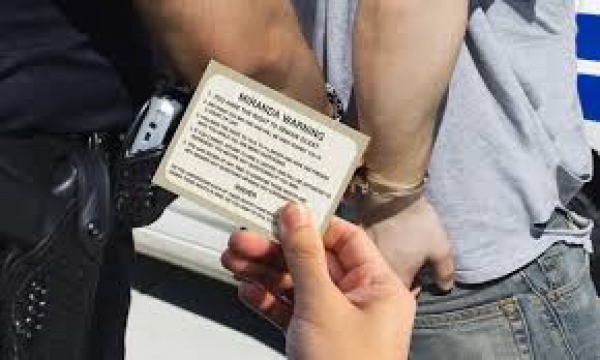Miranda Rights: What Happens If the Police Don't Read You Your Rights?
Many people assume that if they are arrested and not "read their rights," they can avoid punishment. Not accurate. But if the police decline to read a suspect their Miranda rights, the prosecutor cannot use for most purposes anything the suspect states as proof against the suspect at trial. Still, as with almost all legal laws, there are exclusions. What Are Your Miranda Rights? The Miranda warning asks that officers inform you of specific facts following your arrest, and before questioning you. An officer who is going to question you must communicate to you that: 1. You have the right to remain silent. When the Miranda Warning Is Required It doesn't matter whether questioning happens in a jail, at the scene of a violation, or anywhere else: If a person is in custody (stripped of their freedom of operation in any vital way), the police have an obligation to read the Miranda rights if they desire to ask questions and use the answers as testimony at trial. If someone is not in police custody, then no Miranda warning is needed and anything the person states can be applied at trial. Police officers usually bypass arresting people—and make it evident to them that they're free to go—specifically, so they don't have to read the Miranda warning. Then they can arrest the individual after receiving the incriminating statement they sought all along. Pre-Arrest Questioning Do you have to answer police questions if you haven't been arrested? Generally, no. (You usually don't have to respond even if you're under arrest.) A police officer usually cannot arrest a person only for failure to answer questions. There are, nevertheless, circumstances where you might have to present information like identification. Post-Arrest Questioning The almost-universal advice of attorneys is to keep quiet when being questioned after an arrest, at least until after contacting an attorney. Suspects all too often ignorantly share information that can later be used as an indication of their guilt. Consequences of Failure to Provide Miranda Warning Without a Miranda warning, what the arrestee states in response to custodial interrogation can't be used for most purposes as testimony at trial. When Police Come Down Too Hard A violation of Miranda rights doesn't inevitably mean that the officers coerced the statement out of the defendant. But if they did, not only is the statement inadmissible but so too is any evidence that the police receive from the account. Talk to a Lawyer The Miranda rule is complicated, and no one article can tell you all the details. If you've been charged with a crime, you should speak to a lawyer for a full description of the law, including how it may vary slightly in your state or area.
2. If you do say anything, it can be used against you in a court of law.
3. You have the right to have a lawyer present during any questioning.
4. If you cannot afford a lawyer, one will be appointed for you if you so desire.

JamesW
Gerald J. Davis is a trial attorney and Vietnam Veteran. He received his law degree from the University of South Carolina in 1997.Mr. Davis retired as a “State Trooper” from the State of South Carolina in 1994. During his tenure with the Highway Patrol, he investigated accidents and made arrests for various criminal and traffic violations. This valuable experience makes him uniquely qualified as a trial attorney to represent his clients with knowledge and skills gained from all sides of a wide spectrum of diverse issues.
Latest from JamesW
Leave a comment
Make sure you enter all the required information, indicated by an asterisk (*). HTML code is not allowed.



